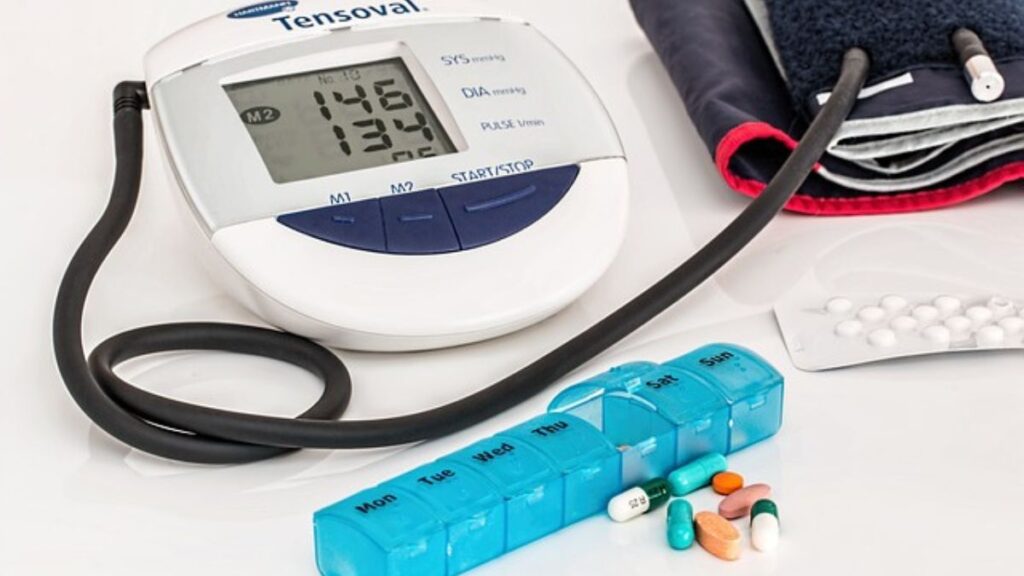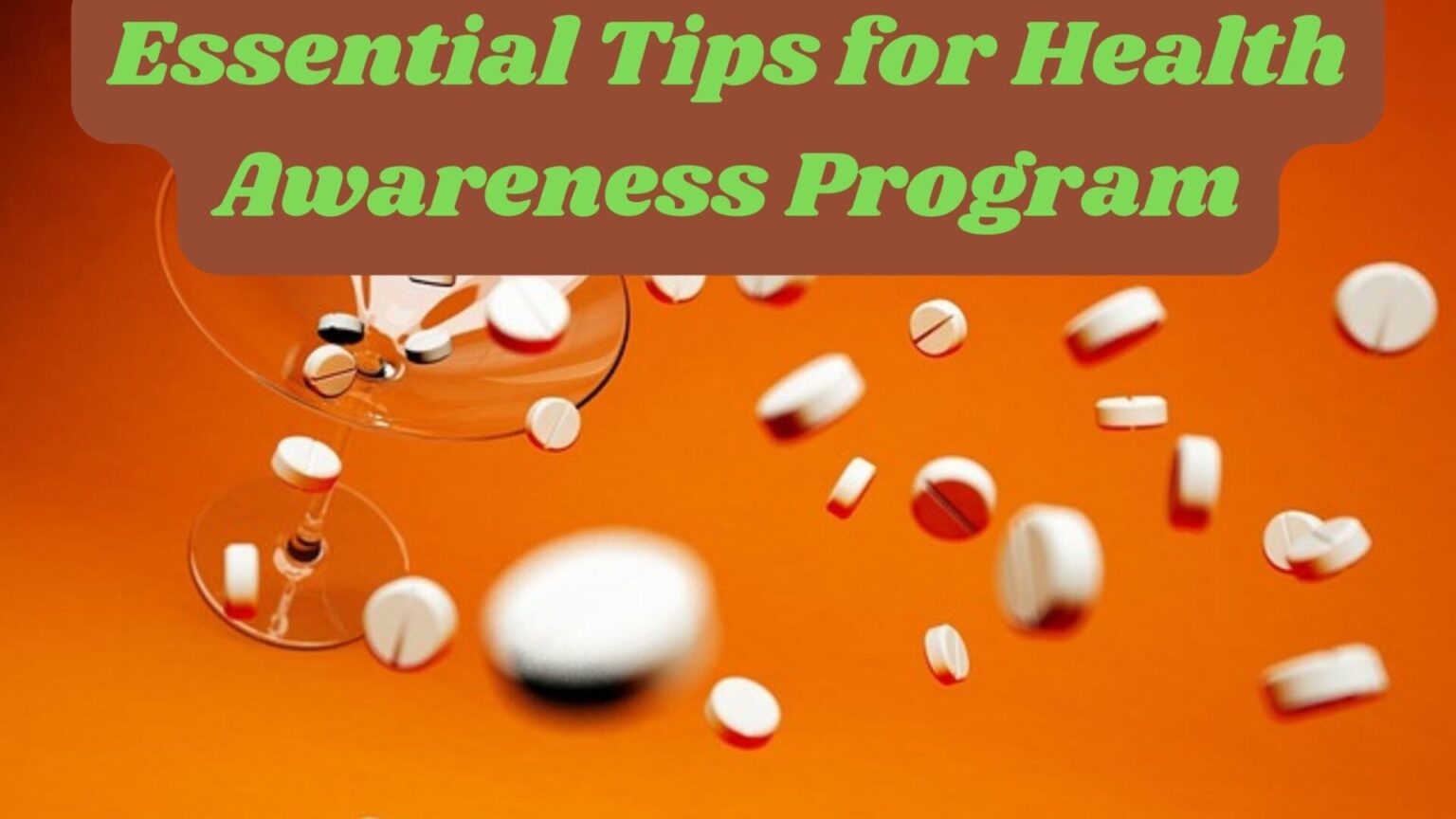Introduction:-
“Blueprint for Impact: Essential Tips for Organizing Health Awareness Program

In the dynamic landscape of public health, organizing effective health awareness programs is crucial for creating a lasting impact on communities. A well-structured blueprint can serve as the foundation for success in these initiatives. This article unveils essential tips to guide you through the process, ensuring your health awareness program achieves maximum reach and influence.
How can we promote health awareness program in society?
Promoting a health awareness program in society involves a strategic approach that combines effective communication, community engagement, and collaboration. Here are several key steps to help you promote a health awareness program successfully:
- Define Clear Objectives: Clearly outline the objectives and goals of your health awareness program. Knowing what you aim to achieve will guide your promotional efforts and help you communicate the program’s purpose effectively.
- Identify Target Audience: Understand the demographics and characteristics of your target audience. Tailor your messages and promotional activities to resonate with the specific needs and interests of the community you’re trying to reach.
- Utilize Multiple Communication Channels: Embrace a multi-channel approach to reach a broader audience. Utilize traditional media (TV, radio, newspapers), social media platforms, community bulletin boards, newsletters, and local events to spread the word about your health awareness program.
- Engage Community Leaders and Influencers: Build relationships with community leaders, influencers, and organizations. Their support and endorsement can significantly amplify your message and lend credibility to your health awareness initiative.
- Leverage Social Media: Capitalize on the power of social media to reach a wide audience quickly. Create engaging and shareable content, utilize relevant hashtags, and encourage community members to share information about the program across their networks.
- Organize Community Events: Host events that bring people together. Workshops, seminars, health fairs, and fitness activities can create a sense of community and provide an opportunity to directly interact with your target audience.
- Collaborate with Local Organizations: Partner with local healthcare providers, schools, businesses, and non-profit organizations. Collaboration can help you access additional resources, extend your reach, and tap into existing networks.
- Provide Educational Materials: Develop and distribute informative and easily understandable materials. Brochures, posters, and flyers with key health messages can be distributed in community centers, clinics, schools, and other public spaces.
- Offer Incentives for Participation: Encourage participation by offering incentives. This could include giveaways, discounts on health services, or other tangible benefits for those who actively engage with the program.
- Utilize Testimonials and Success Stories: Share real-life testimonials and success stories from individuals who have benefited from the health awareness program. Personal narratives can inspire others to participate and create a positive perception of the program.
- Implement Public Service Announcements (PSAs): Work with local media outlets to broadcast PSAs about your health awareness program. These short, informative messages can reach a broad audience and raise awareness quickly.
- Create a Digital Presence: Develop a dedicated website or landing page for your health awareness program. Ensure it contains relevant information, resources, and ways for individuals to get involved or seek further information.
- Measure and Adjust: Regularly assess the effectiveness of your promotional efforts. Use feedback, surveys, and data analytics to understand what works and what needs improvement. Adjust your strategies accordingly to maximize impact.
By implementing these strategies, you can create a comprehensive and effective promotional plan for your health awareness program, fostering community engagement and positively impacting public health.
What are the benefits of health awareness campaigns?
Health awareness campaigns offer a range of benefits, both at an individual and societal level. Here are some key advantages of health awareness campaigns:

- Disease Prevention and Early Detection: By raising awareness about various health issues, campaigns contribute to disease prevention and early detection. Increased knowledge prompts individuals to adopt preventive measures and seek medical attention at the early stages of illnesses, leading to better health outcomes.
- Promotion of Healthy Lifestyles: Health awareness campaigns often emphasize the importance of adopting healthy lifestyles. This includes promoting regular exercise, balanced nutrition, stress management, and other behaviors that contribute to overall well-being.
- Empowerment of Individuals: Educating individuals about their health empowers them to make informed decisions. Awareness campaigns provide people with the knowledge and tools they need to take control of their health and actively participate in preventive measures.
- Reduction of Stigma: Campaigns addressing mental health, chronic illnesses, and other health issues help reduce stigma and foster understanding. Increased awareness contributes to more supportive and inclusive communities, encouraging individuals to seek help without fear of judgment.
- Community Engagement: Health awareness campaigns often involve community events, workshops, and collaborations. This engagement fosters a sense of community and encourages collective efforts to improve overall health, creating a supportive environment for positive behavioral changes.
- Public Policy Impact: Successful health awareness campaigns can influence public policies. Advocacy efforts that garner public support may lead to the development of policies and initiatives aimed at improving healthcare access, environmental factors, and overall community well-being.
- Cost Savings in Healthcare: By promoting preventive measures and early detection, health awareness campaigns can contribute to cost savings in healthcare. Preventing illnesses or detecting them at early stages can reduce the financial burden associated with prolonged and intensive treatments.
- Preserve Groundwater Levels:Modern ApproachesImproved Public Health Indicators: Health awareness campaigns contribute to improved public health indicators such as reduced morbidity and mortality rates. Increased awareness and proactive health behaviors lead to better health outcomes at the population level.
- Education for Specific Conditions: Campaigns focused on specific health conditions provide education about symptoms, risk factors, and available treatments. This information enables individuals to recognize warning signs and seek appropriate medical attention, potentially saving lives.
- Behavioral Change: Health awareness campaigns aim to bring about positive behavioral changes. Whether it’s encouraging smoking cessation, promoting vaccination, or fostering safe practices, campaigns influence individuals to adopt healthier behaviors for themselves and their communities.
- Crisis Preparedness: Health awareness campaigns contribute to community preparedness for health crises. In times of outbreaks or emergencies, an informed public is better equipped to follow guidelines, access healthcare resources, and contribute to collective efforts in managing the situation.
- Increased Funding for Research: Successful health awareness campaigns can generate increased public interest and support for research on specific health issues. This may lead to more funding for research and development, potentially advancing medical breakthroughs and treatment options.
In summary, health awareness campaigns play a pivotal role in promoting individual and community well-being by fostering informed decision-making, encouraging healthy behaviors, reducing stigma, and contributing to positive societal changes.
How do Health Awareness Programs impact community health?
Health Awareness Programs have a significant impact on community health in various ways. Here are some key impacts:
1. Education and Knowledge Enhancement
Health Awareness Programs educate the community about health issues, prevention strategies, and healthy behaviors. By increasing knowledge, individuals can make informed decisions about their health and adopt healthier lifestyles.
2. Promotion of Preventive Health Practices
These programs emphasize the importance of preventive measures such as vaccinations, regular health screenings, and healthy lifestyle choices. Early detection and prevention can reduce the incidence and severity of diseases, ultimately lowering healthcare costs and improving quality of life.
3. Reduction of Health Disparities
Health Awareness Programs often target underserved or vulnerable populations, providing them with the information and resources they might otherwise lack. This helps reduce health disparities by ensuring that all community members have access to the knowledge and tools necessary for maintaining good health.
4. Behavioral Change and Healthy Lifestyle Adoption
By raising awareness about the benefits of healthy behaviors—such as regular exercise, balanced nutrition, and avoiding harmful substances—these programs can lead to positive behavioral changes. Community members are more likely to adopt and maintain healthy habits when they understand their importance and have support.
5. Improved Mental Health and Well-being
Programs that address mental health awareness help reduce stigma, encourage individuals to seek help, and promote mental well-being. This can lead to better mental health outcomes, reduced rates of mental illness, and a more supportive community environment.
Conclusion
By following this blueprint for impact, you can organize health awareness programs that leave a lasting impression on communities. Through strategic planning, collaboration, and a commitment to continuous improvement, your initiatives can contribute significantly to the well-being of the communities you serve.
FAQs
1. What is a Health Awareness Program?
A Health Awareness Program is an initiative designed to educate individuals and communities about health issues, promote healthy behaviors, and prevent diseases. These programs can include workshops, seminars, health fairs, and informational campaigns.
2. Why are Health Awareness Programs important?
These programs are important because they help to:
- Increase knowledge about health and wellness.
- Encourage preventive health practices.
- Reduce the incidence of diseases and health conditions.
- Promote healthier lifestyles and behaviors.
- Support early detection and treatment of health issues.
3. What topics are typically covered in Health Awareness Programs? Common topics include:
- Nutrition and healthy eating
- Physical activity and exercise
- Mental health and stress management
- Preventive screenings and vaccinations
- Substance abuse prevention
- Chronic disease management (e.g., diabetes, hypertension)
- Sexual and reproductive health
References
- World Health Organization (WHO) – Provides resources and guidelines on health promotion and disease prevention.
- Centers for Disease Control and Prevention (CDC) – Offers a wide range of information on health awareness programs and public health initiatives.
- National Institutes of Health (NIH) – Conducts research and provides educational materials on various health topics.






